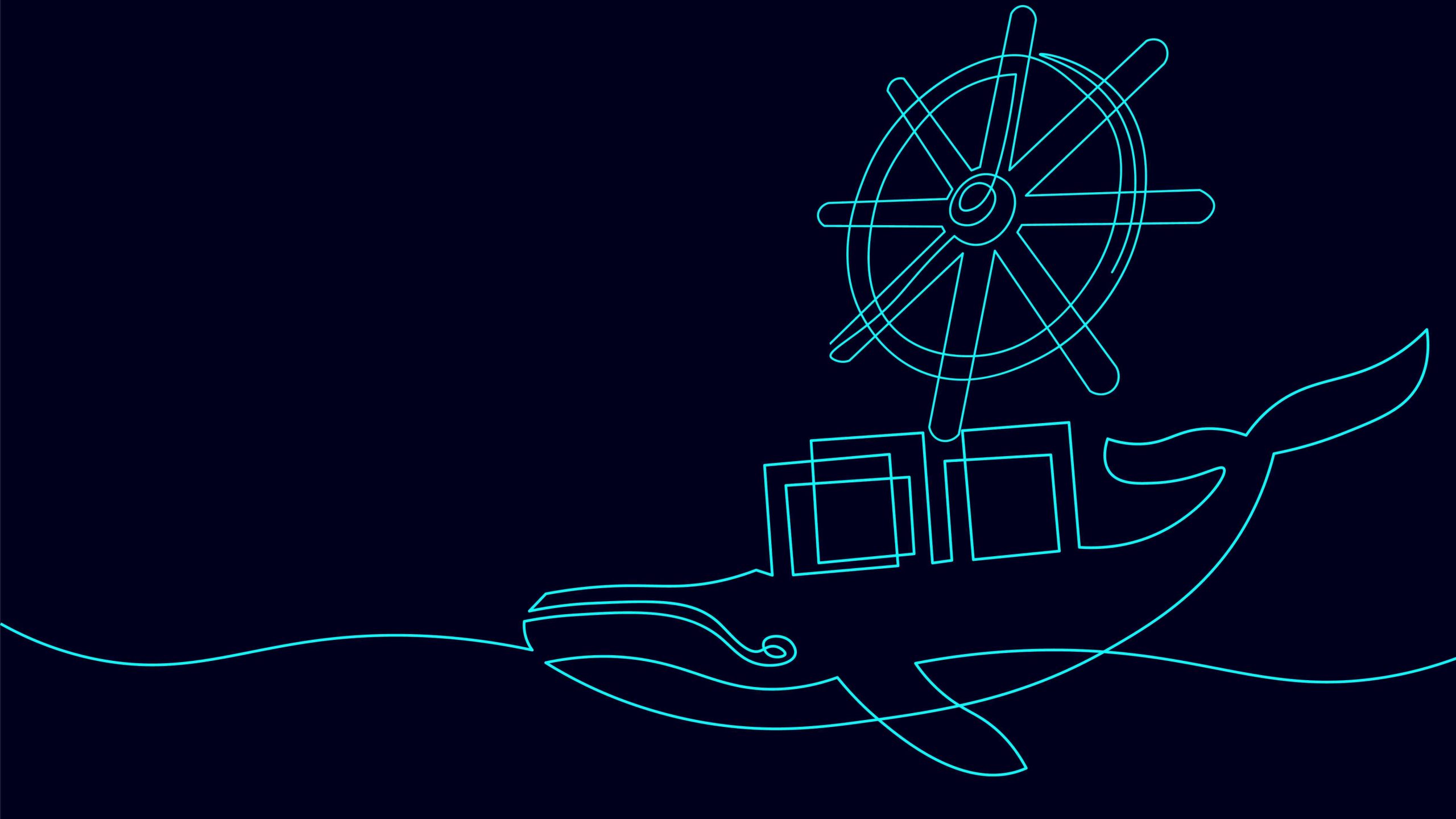Docker vs. Kubernetes – what is the difference between these two? The former is a containerisation platform and runtime that helps you build, deploy and manage containers. The latter, on the other hand, is a runtime platform for containers – it can be used with Docker.
Both platforms are extremely helpful in the digital realm of banking. Therefore, in this article, we shall look at their functions, capabilities and differences in more detail. Did we spark your interest? If yes, read on.
Table of Contents
- Kubernetes vs. Docker Defined
- Docker vs. Kubernetes: The Differences
- Kubernetes and Docker – The Perfect Pair
- Kubernetes vs. Docker in Finance and Fintech
- The Takeaway
Kubernetes vs. Docker Defined
Before we proceed with our discussion on Kubernetes vs. Docker, let’s explain what each of these platforms is in more detail.
What Is Docker?
Docker is an open-source application that enables developers to pack, deploy and run applications in containers. While it is possible to do so without the platform (a developer can create an in-container app on their own), Docker makes it much easier.
While Docker itself is a great tool that enables containerisation, it is unfit for running and managing containers at scale. In such instances, you need to use other platforms, like Kubernetes.
What Is Kubernetes?
Kubernetes (K8) is an open-source platform used to run a number of containers. It was originally developed by Google since the tech giant was looking for a way to run billions of containers a week.
This platform enables you to bundle containers into a group and manage them on the same machine. As such, it not only makes running multiple containers easier but also reduces network overhead. Its main advantage is scalability (as shown by the Google example) – no matter how many containerised apps you need to run, Kubernetes will do the job.
Read more about the power of Kubernetes in our article: Elevating FinTech Capabilities with the Power of Kubernetes
Docker vs. Kubernetes: The Differences
Having briefly introduced the two platforms, let’s delve into their differences. From the definitions, it’s clear that they aren’t the same thing and that they are actually compatible. However, there are also some similarities between them.
So, what are the differences between Docker vs. Kubernetes? Take a look below.
Functions
On the surface, both Docker and Kubernetes can be used to run and manage containers. However, if you look more deeply, you’ll find that their functions expand in different directions.
Docker enables the creation of containers. On the other hand, while you can run each containerised app with it, it’s impossible to do this at scale easily with this platform. Kubernetes, on the other hand, won’t create containers for you. However, it’s able to take those created in Docker (or in similar platforms) and run many of them at once while optimising the process.
You should also be aware that Docker comes with its own module, Docker Swarm, which enables grouping containers together and managing or running them at scale. However, it’s disabled by default, and Kubernetes is much more complex (which can be both a pro and a con).
Environment
Docker is best for small, local architectures where not many containers need to be run together. Kubernetes works best in large-scale environments, where Docker would simply be inconvenient.
Self-Healing
Another useful function of Kubernetes that Docker lacks is self-healing. When a container fails in the former, it is automatically replaced with a new one. This does not occur in the latter unless you use additional modules like Docker Compose or Docker Swarm.
Installation and Configuration
Since Kubernetes is more complex, so is its installation process and configuration. This pays off in bigger processing power; however, it might be a downside for less technical users.
At Ailleron, we offer you Kubernetes managed banking solutions. We will help you bring containerisation to your organisation and manage large numbers of microservices at once!
Kubernetes and Docker – The Perfect Pair
As different as they may seem, Kubernetes and Docker can form the perfect partnership. You can use the latter to contain your small applications and then deploy them at scale with the former. After all, from the development perspective, they are responsible for different steps of the process.
You won’t create containers in Kubernetes, so you need Docker to do that. However, after the building and configuration phase, it’s Kubernetes time to shine – you can use this platform to deploy them. As such, they aren’t contrary – they are a pair that creates the perfect symbiosis.
Kubernetes vs. Docker in Finance and Fintech
We’ve explained the difference between Kubernetes and Docker and shown you what these two platforms are for in technical terms, but there is still one question we need to answer: How can you use them in finance or fintech? Here’s the answer.
The first use case of Kubernetes and Docker may be observed in AI and ML, namely when data analysis is involved. Here, the former provides visibility into the process while scaling the available resources to the model’s needs or automating processes like health checks.
Need help with artificial intelligence? See our AI solutions for banking!
Another example may be observed in retail banking. Here, the website or your cloud app may suffer from fluctuating traffic and, as such, significant disproportions in performance. Running it on containers via Kubernetes enables your app or site to adjust to the demand swiftly with minimal downtime. This way, you ensure that your clients can use your digital products comfortably at any time without overprovisioning.
The Takeaway
To sum this article up, what is the difference between Docker and Kubernetes? The former is used for creating containers and managing them one by one, while the latter is designed to run containers at scale. They aren’t contrary to each other – you can first create containers in Docker and then deploy them via Kubernetes. As such, they create the perfect system that is useful for machine learning when working with big data or to optimise your IT architecture and prepare it for traffic peaks without overcompensating the number of resources used daily.
Did you like this article? Then you may also read: Microservices architecture as the best way to build omnichannel platform

 Polski
Polski Deutsch
Deutsch





